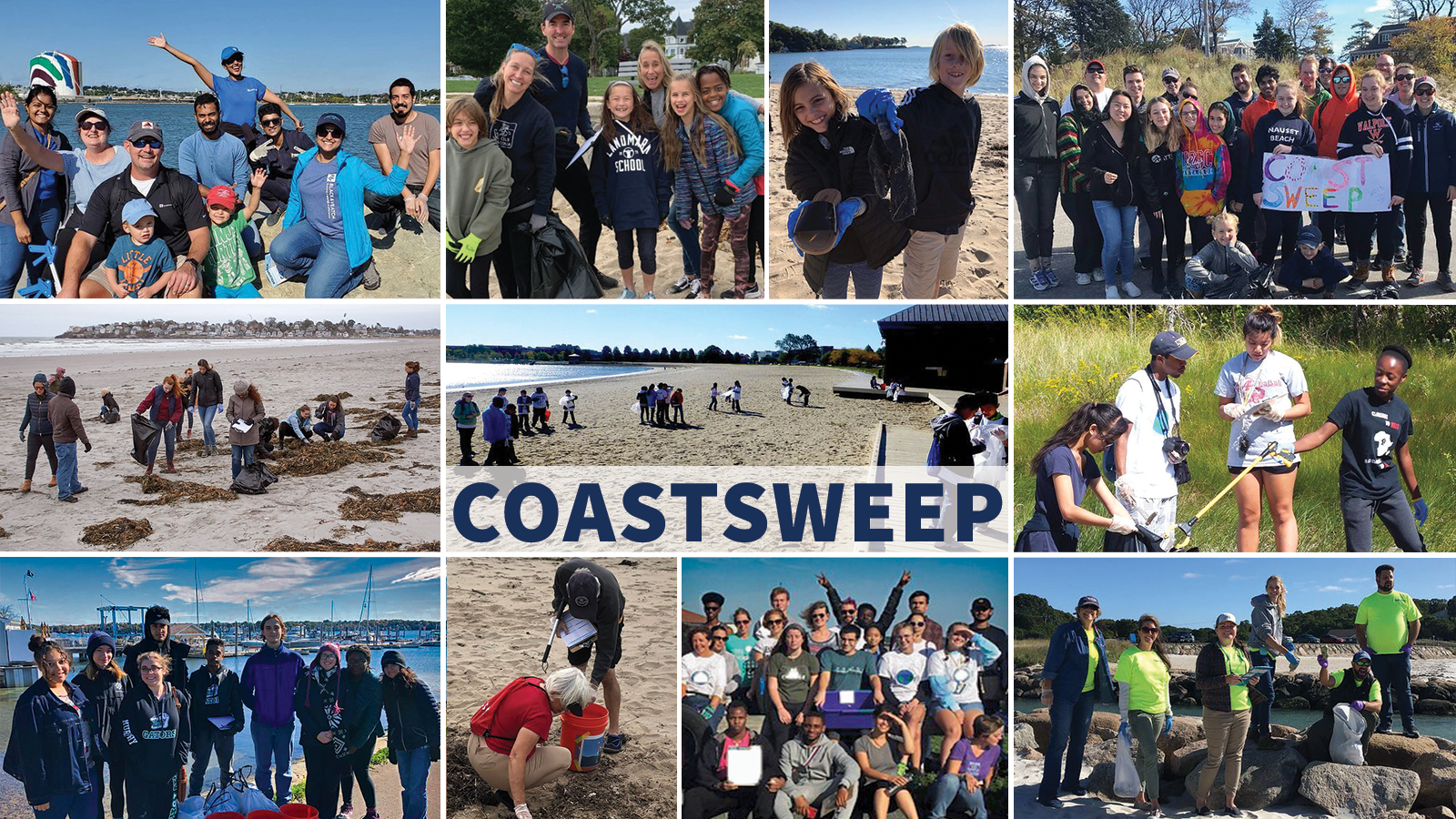- Executive Office of Energy and Environmental Affairs
- Massachusetts Office of Coastal Zone Management (CZM)
Media Contact
Danielle Burney, Deputy Communications Director

BOSTON — The Healey-Driscoll Administration today announced that Saturday, September 16, will mark the official start of the 2023 COASTSWEEP beach cleanup, and members of the public are encouraged to volunteer at one of the many cleanup events planned along the coast this fall. Organized by the Executive Office of Energy and Environmental Affairs’ (EEA) Office of Coastal Zone Management (CZM), COASTSWEEP cleanups are held into early November. Since 1987, thousands of COASTSWEEP volunteers have removed hundreds of tons of marine debris and other trash from Massachusetts beaches, lakes, rivers, and the seafloor.
“Massachusetts boasts more than 1,500 miles of coastline, and now is a great time to give back to the beaches we love,” said Energy and Environmental Affairs Secretary Rebecca Tepper. “COASTSWEEP volunteers keep coastal ecosystems clean and safe while collecting important data on the sources of marine debris.”
“Marine debris has serious impacts on our oceans and waterways—from harming marine life to creating navigation hazards to marring the beauty of our beaches,” said Coastal Zone Management Director Lisa Engler.“Much of the material collected during COASTSWEEP starts as litter on our streets, which washes into storm drains and out to the sea. So, in addition to volunteering for COASTSWEEP, please help reduce marine debris by properly disposing of trash all year.”
COASTSWEEP is part of the International Coastal Cleanup, organized by Ocean Conservancy, and draws hundreds of thousands of volunteers to coastal cleanups in more than 150 countries worldwide. In addition to removing trash, COASTSWEEP volunteers tally the items found. This information is entered into Ocean Conservancy’s international marine debris database, where it helps researchers and policymakers better understand the sources of global marine debris and develop solutions for prevention.
From plastics as tiny as a grain of sand to items as large as abandoned cars, marine debris is more than an eyesore. Sea birds, seals, and other animals can be harmed when they swallow or become entangled in these materials. Sea turtles are particularly vulnerable and can die after swallowing clear plastic bags, which look like their favorite food, jellyfish. Beachgoers can injure themselves on sharp items while walking on the sand, and boaters can become stranded when propellers are jammed with fishing lines or cooling intakes are clogged with plastic. During COASTSWEEP 2022, nearly 2,900 volunteers removed more than 9 tons of trash from 148 sites in Massachusetts. As with past years, cigarette butts were the most common item collected (18,646 total), followed by plastic pieces (9,713). Many other plastic items were removed and cataloged—including food wrappers, bottles and caps, straws, and foam packaging—for a total of 41,303 plastic items tallied on Bay State beaches.
A great way to get involved in COASTSWEEP is to organize a cleanup. All supplies (bags, gloves, data cards, pencils, etc.) are provided free of charge, and cleanups can be scheduled at your convenience. Individuals can also volunteer at a scheduled cleanup. To organize or join a cleanup, check out the COASTSWEEP website or email coastsweep@mass.gov. COASTSWEEP 2023 sponsors are EEA, CZM, Ocean Conservancy, the Department of Conservation and Recreation (DCR), and Tronex, a personal protective equipment company that provided gloves for the cleanups.
The Massachusetts Office of Coastal Zone Management (CZM) is the lead policy and planning agency on coastal and ocean issues within the Executive Office of Energy and Environmental Affairs. Through planning, technical and grant assistance, and public information programs, CZM seeks to balance the impacts of human activity with the protection of coastal and marine resources. The agency’s work includes helping coastal communities address the challenges of storms, sea level rise, and other effects of climate change; working with state, regional, and federal partners to balance current and new uses of ocean waters while protecting ocean habitats and promoting sustainable economic development; and partnering with communities and other organizations to protect and restore coastal water quality and habitats.
###